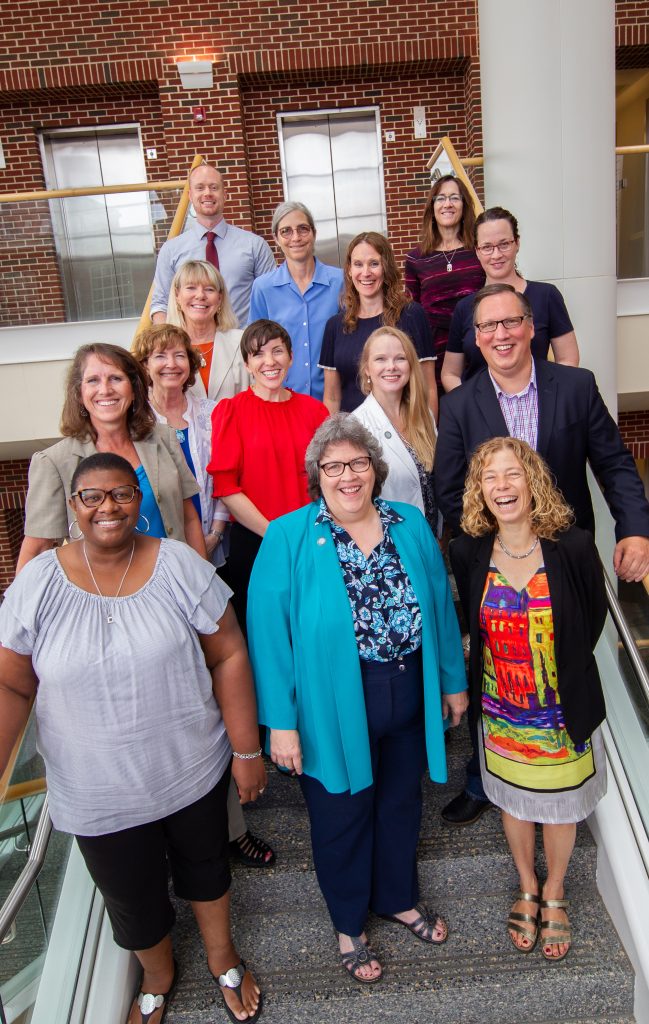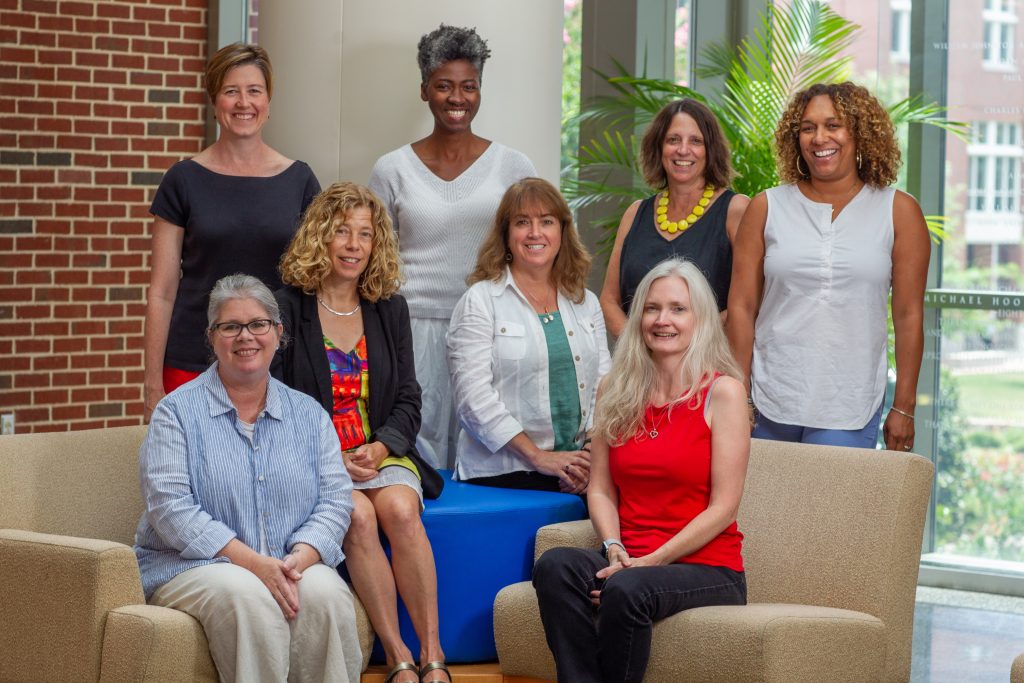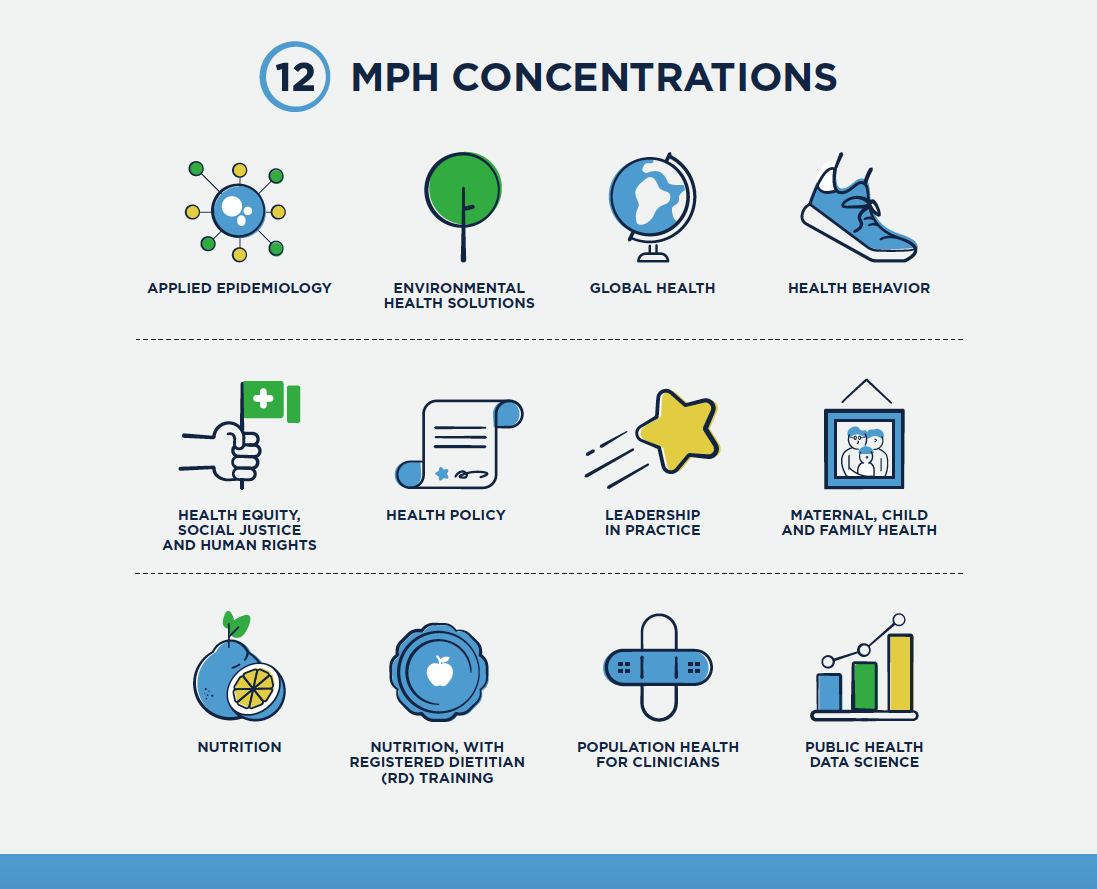Our Shiny, New Master of Public Health
October 8, 2018
We’ve redesigned our MPH to give students the education they need and employers want.
After nearly three years of planning, Gillings School faculty, staff and students debuted an innovative new Master of Public Health degree in fall 2018 – one of the first of its kind.
 More than 60 faculty members, staff and many others in the Gillings School of Global Public Health community collaborated to design the program.
More than 60 faculty members, staff and many others in the Gillings School of Global Public Health community collaborated to design the program.
“The new degree is a strategic response to a changing work world,” says Karin Yeatts, PhD, associate professor of epidemiology, award-winning teacher and lead instructor of the new Methods and Measures core course. “It is an interdisciplinary, collaborative, broad-based program that familiarizes our students with a wide range of issues in the public health field before they focus on more specific content in their areas of concentration.”
Students enroll in an integrated core of 12 credits in the first year, six credits each semester. Fall classes include Understanding Public Health Issues, Methods and Measures for Public Health, and Data Analysis for Public Health. In the spring, students take Conceptualizing Public Health Solutions and Developing, Implementing and Evaluating Public Health Solutions.
 “This is such an exciting concept in learning,” says Varsha Subramanyam, MPH, a spring 2018 Gillings School alumna, who worked with the team that developed the new core courses. “This interdisciplinary curriculum enables all students to study and work together in teams to learn the foundational concepts of public health before moving to their content areas.”
“This is such an exciting concept in learning,” says Varsha Subramanyam, MPH, a spring 2018 Gillings School alumna, who worked with the team that developed the new core courses. “This interdisciplinary curriculum enables all students to study and work together in teams to learn the foundational concepts of public health before moving to their content areas.”
This is how students will work throughout their careers.
Subramanyam noted that there is room in the curriculum for open discussion about societal factors and systemic issues that affect public health, including racial justice, immigration and LGBTQ rights.
Previously, graduate students took five specific, discipline-based courses in health policy and management, health behavior, environmental sciences and engineering, epidemiology and biostatistics. Since no particular order of study was required, students could be at the School for a year or more of their two-year program and never learn about all the School’s disciplines or meet the students working in them. They could miss central concepts fundamental to their practica and other work.

Members of the MPH steering committee smile together.
Today, the MPH is being designed intentionally to assure that all experiences are well timed, well taught and well thought-out.
“I’m proud to have been invited to help shape the new program,” Subramanyam says. “It’s important that students helped to develop the core courses, as they have an overview of the whole program and know what the classroom experience is like. We made recommendations for syllabi, for instance, trying to balance team projects and individual work. It is really a student-centric program, and I think student input will continue to be valued.”
“At the Gillings School, we’re excited about training the next generation of public health professionals,” says Laura Linnan, ScD, professor of health behavior and senior associate dean for academic and student affairs. “We know that in the real world – and we’ve heard this from employers – people work in teams and collaborate with people from many disciplines. This new program prepares our students to work in the real world and solve real-world problems.”
Linnan says the curriculum will introduce students both to historic and emerging public health issues – from obesity and infectious diseases to opioid misuse and distracted driving.
The new core lays a foundation in the first year. Some concentration coursework begins, leading to a practicum experience in the summer before the second year. The second year is all content and skills-building in one of the 12 concentration areas (see above), as students prepare to transition into their post-graduation jobs.
The same concentrations are offered in an online degree program, MPH@UNC.

Instructors in the MPH core courses are from departments across the School.
“Helping envision and develop the core courses has been one of the most challenging – and rewarding – experiences of my teaching career,” says Shelley Golden, PhD, assistant professor of health behavior at the Gillings School. “It has made me rethink my own perspective on public health and consider how much my way of seeing is informed by the discipline in which I was trained. Getting to work so closely with colleagues from across the School – all of whom are fantastic educators – has really helped me grow, both pedagogically and as a public health professional.”
“Students today are global and connected,” says Barbara K. Rimer, DrPH, dean and Alumni Distinguished Professor at the Gillings School. “Tools and methods have evolved and will continue to do so. The ways we work have changed, too.”
Now, Rimer says, public health professionals work in teams and across disciplines to solve complex problems affecting populations and individuals. Like people in many fields today, public health professionals must learn new methods and tools quickly, knowing that they also will change.
“It is essential that we graduate curious, critically thinking professionals who are culturally competent, strong communicators and adept in the skills of data science,” Rimer says. “No matter what their disciplines and focus areas, they must be flexible, nimble and adept at synthesizing information from many sources. Our students will be prepared for this world.”
—Linda Kastleman

Carolina Public Health is a publication of the University of North Carolina at Chapel Hill Gillings School of Global Public Health. To view previous issues, please visit sph.unc.edu/cph.
